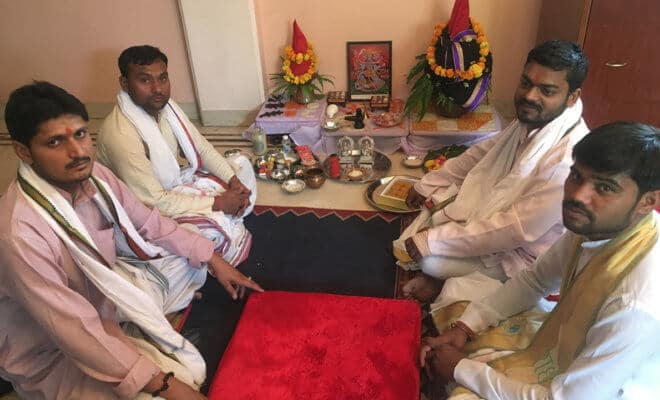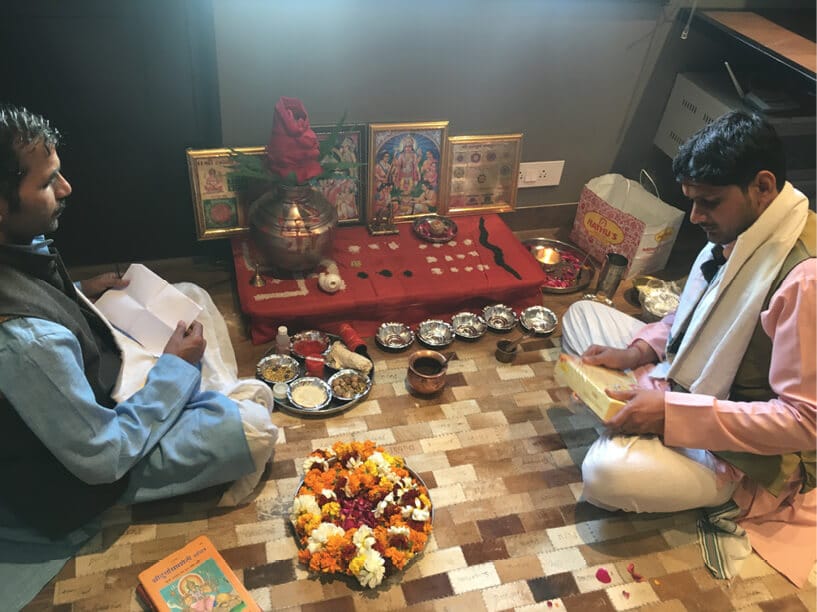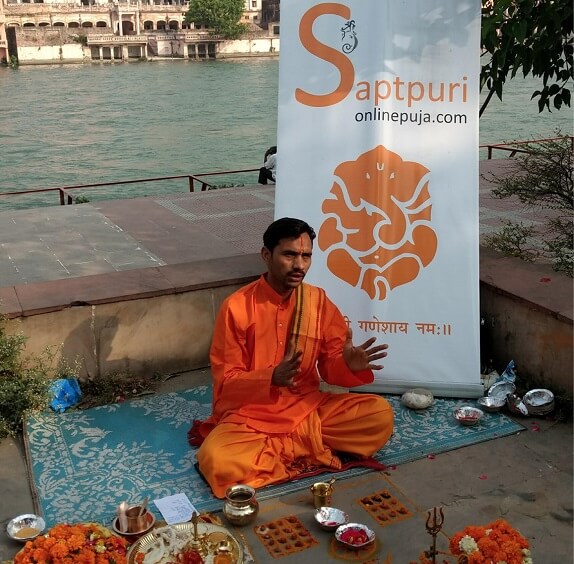Life
@God

Photo: Shubh Puja
As surreal as it may sound, legions of Indians settled abroad are connecting to God new-age style.
For the Arora family in North Dakota, the prospect of moving into their newly purchased home was exciting. The Aroras came to the United States 10 years ago and the family moved several cities before settling in Fargo, North Dakota. They were looking forward to moving into their new, first owned home, but there was a bit of a stumbling block.
Mr Aroras’ mom in India insisted that before settling into their new home they had to perform grih pravesh puja. The Aroras, though fairly spiritual, hardly little knowledge of havans and pujas. Says Arora, “The prospect of finding a pundit in a sleepy, white dominated, Midwest American city was as challenging as looking for snow in Sahara. It was then that a friend in New Jersey suggested something that my wife and I could never believe — an online girh pravesh puja.”
So, the following week after a couple of e-mail exchanges with an online puja provider on an auspicious time, long before most of America was awake, the Aroras sat with some water and thali on Skype with three priests in New Delhi, who chanted various mantras and conducted a havan on behalf of the family and blessed them.
The Aroras were now ready to call their new house home!

Saumyaa Vardhan of Shubh Puja believes that online puja services are reinventing puja just as yoga got re invented.
As surreal as it may sound, legions of Indians settled abroad are connecting to God new-age style. In an era of digitization, praying to God or seeking divine intervention has turned tech savvy. A host of online services catering to NRIs are set to further inflate the $30 billion religious market in India. From providing everything from chanting, specific pujas to ritualistic funeral services with a click on their screens without the hassle of looking for a Brahmin, pundit or an elderly to guide on how to perform a puja, the services are disrupting the industry as we know it.
One might assume that these services cater to elderly, very religious or superstitious Indians. Instead, most providers claim, that they are targeting the millennial generation. For most of these services the clients range from corporates, professionals and students who are into spirituality and have faith, but are not inclined to go to mandirs.
Mountain View, Calif., based Saumyaa Vardhan, who heads Shubhpuja.com, describes her portal as a science and technology based platform for vedic pujas, astrology, vastu and spiritual needs. In a twist, although her service specializes in chanting and conducting vedic pujas, she says nearly a quarter of her clientele in the United States comprises Christians, Muslims and Sikhs. Vardhan, who has a finance and mathematics background and worked with Rolls Royce and KPMG in London before she launched shubpuja, says: “We cater to younger generation between 25-45 years of age, who are very well educated and are passively religious. They may have migrated to different cities and do not have the elderly or the family priests to guide them in certain situations, which is where we come in picture to take care of everything from a puja for job or fortune to astrological help.”
The services typically start from $50-$250 and can go up depending upon the requirements.
Saptpuri online puja, started by New Jersey based entrepreneur Sumesh Madan, takes the concept of online pujas to version 2.0. Madan, who piloted the concept with partners in India, says that they are catering to educated, established women based in the United States and Canada, in the age-group of 30-40 years who may be divorced or unmarried and are looking to settle down.
The service, which specializes on specific problems, such as marital or health, plays the part of pundit and counselor. Madan says: “We have on board with us reputed and knowledgeable pundits from the seven holy cities in India. For every issue, the puja is performed at all the seven holy cities, such as Kashi, Varanasi, Mathura, with specific mantras mentioned in the puranas. The person requesting the pujas has the option of watching the pujas online or download it to view later.”
However, the service does not end there; Madan says they try to align the chakras and the karmas for better results. So, don’t be surprised if the puja app offers you advice on how to better groom yourself or to socialize more to meet prospective partners. Madan says: “Karma comprises of external stimuli that a person needs to apply and then seek divine intervention and we are just trying to channel it.”
A Bangalore based service Harivara.com, started by Arun Kumar, offers everything from engagement puja to 60th birthday puja, which many young people settled outside of India may want to organize for parents back home. Vedicvaani.com ships religious souvenirs from Shivalinga to Nataraja across the globe while OnlinePrasad.com delivers prasad from the major temples across India to your doorstep. So, you can savor the rewri and makhana prasad from Shirdi delivered to your doorstep whether you are in Seattle or Salzburg.

Photo: Saptpuri
Are the services exploiting the religious sentiments of people? The providers insist that they are only facilitating and organizing the sector. Saumyaa Vardhan explains that many of the services they offer help to Indians abroad during some of the most crucial times in their life. Citing her personal experience which led her to launch Shubhpuja, she says: “A few years ago, when I returned to Delhi from London, one of my friend’s father passed away. As she and her brother were based in New Zealand and most of the family was settled abroad, aunty was left to prepare for the funeral services on her own before the family could join her. This experience showed me that for many it gets doubly painful to handle the logistics while they are grieving, especially if they are not aware of the rituals to be followed. This served as a catalyst for me to try and organize the sector and make it easier to approach as well as reliable.”
Most portals claim that their pundits come with sound religious knowledge and are vetted for their expertise.
But with every puja from monetary gains to end marital discord listed in their services, are the portals also encouraging superstitious beliefs? Saptpuri’s Madan disagrees: “If you look at our format it is not based on idle chanting of mantras. It encourages and inspires the seekers to go out there and help their cause, we are only providing a faith based link in the process.”
He adds: “When we were launching we were acutely aware of our target and hence we steered away from the format of having too many Gods or mantras. The idea is not to make the process overwhelming, but to make it inviting and approachable.”
Vardhan concurs: “Everything begins with a faith. Whether it is the faith in a puja or a faith in yourself. We are only helping people reach their faith with ease. If you look at yoga, today it is suddenly such a big thing around the world. Just as yoga came out of scriptures, we are also following the same scriptures and puranas that offer advice on pujas. One could say that we are re-inventing puja, just as yoga got re-invented.”




You must be logged in to post a comment Login